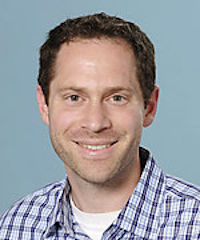 The MIH Master’s Degree program is INMED’s premier endeavor to prepare healthcare professionals to be leaders in international health. It’s also a culmination of the last 18 years of hard work by the staff at INMED. Dr. Michael Schick has been a crucial and influential learner for nearly all INMED’s history. Starting as a med student in 2006, Michael earned INMED’s Professional Certificate in International Medicine and Public Health. In 2013 he also achieved the Professional Diploma in International Medicine and Public Health (DIMPH), serving at Karl Heusner Memorial Hospital in Belize. This spring, Dr. Schick was recognized with INMED highest academic credential, the Professional Master’s Degree in International Health.
The MIH Master’s Degree program is INMED’s premier endeavor to prepare healthcare professionals to be leaders in international health. It’s also a culmination of the last 18 years of hard work by the staff at INMED. Dr. Michael Schick has been a crucial and influential learner for nearly all INMED’s history. Starting as a med student in 2006, Michael earned INMED’s Professional Certificate in International Medicine and Public Health. In 2013 he also achieved the Professional Diploma in International Medicine and Public Health (DIMPH), serving at Karl Heusner Memorial Hospital in Belize. This spring, Dr. Schick was recognized with INMED highest academic credential, the Professional Master’s Degree in International Health.
As Dr. Schick says himself, “Resistance to taking on lots and lots of work has never been my problem,” which is evident by his career in international medicine. His service in Belize, Uganda, Viet Nam, and Nepal especially impressed upon him the importance of emergency care in underserved areas. Often the places he visited lacked basic diagnostic tools, which led him to realize how beneficial ultrasound could be in limited resource hospitals and clinics. He knew, like in his own experience abroad, providers would be exposed to ailments that were often unfamiliar and therefore difficult to diagnose and treat.
Pulling from his education at INMED, Dr. Schick set out to bring advanced emergent care to such communities by creating an extensive, text-book style, online resource that healthcare providers can use as a reference guide for ultrasound diagnostics: Ultrasound in Resource-Limited Settings: A Case Based, Open Access Text. This innovative website is a key clinical tool that is accessible to anyone in the world for absolutely no cost, and is currently being translated into Spanish, Italian, Portuguese, French, and Farsi, plus more languages in the future.
Dr. Schick still sees far more room for improvement in emergent care for at-risk communities. When asked what he would do if he were to start a medical facility from scratch, Dr. Schick responds that, “I would meet with leaders/stakeholders up front to demonstrate the importance of emergent care so that it is a part of the initial integrated healthcare plan. I wish hospital leadership recognized its importance earlier which would have reduced many of the challenges we now face”.
Concurrently, Dr. Schick is working to expand the access to global health medicine education for trainees at University of California-Davis. When asked about his motivation to serve at low income or at-risk communities Dr. Schick wrote, “Since I was young, I have heard stories from my family about the horrors of war, persecution and displacement. This generational trauma left its mark and I have always thought that if I could make it part of my life’s work to heal the world and bring peace then I should see exactly what kind of impact I can make. Therefore, it is with great tenacity that I would prioritize the fundamental human rights of health and peace”.
